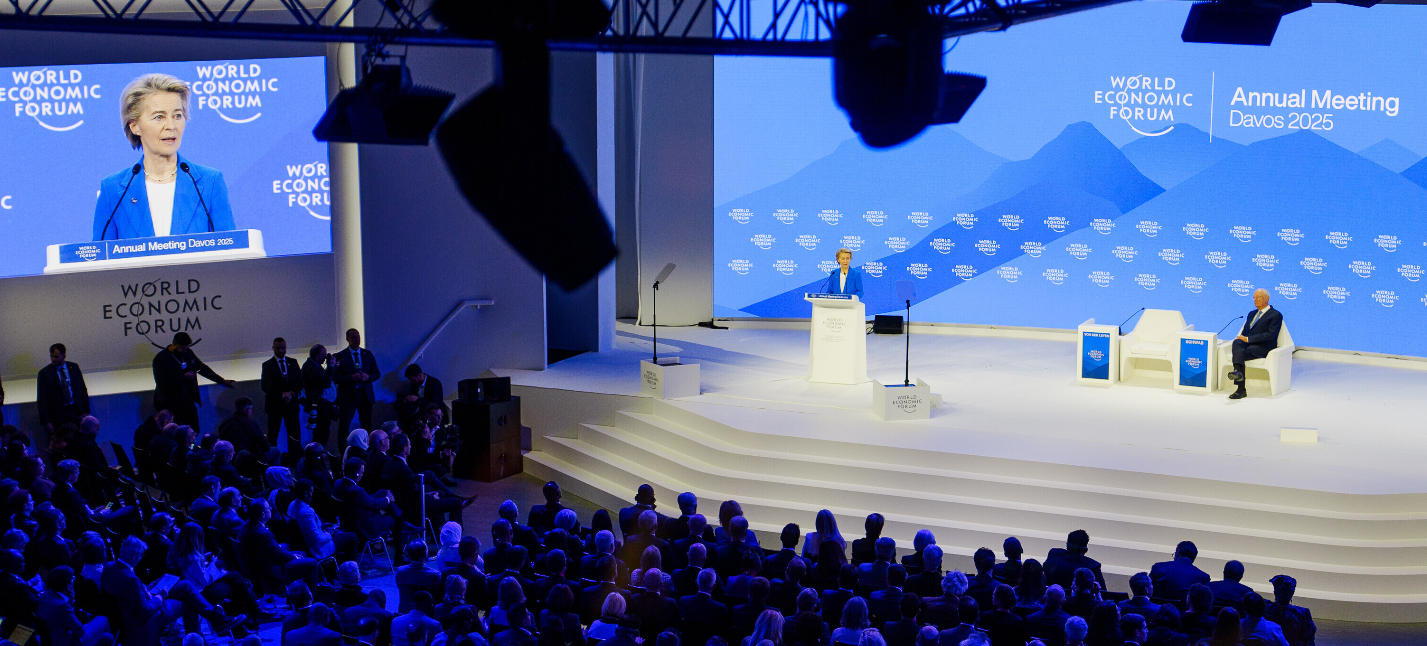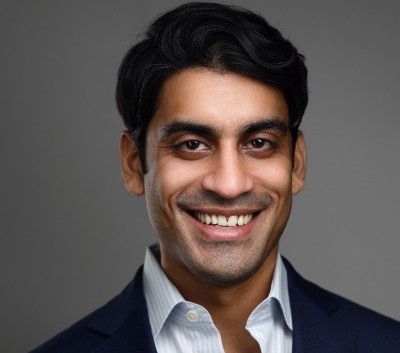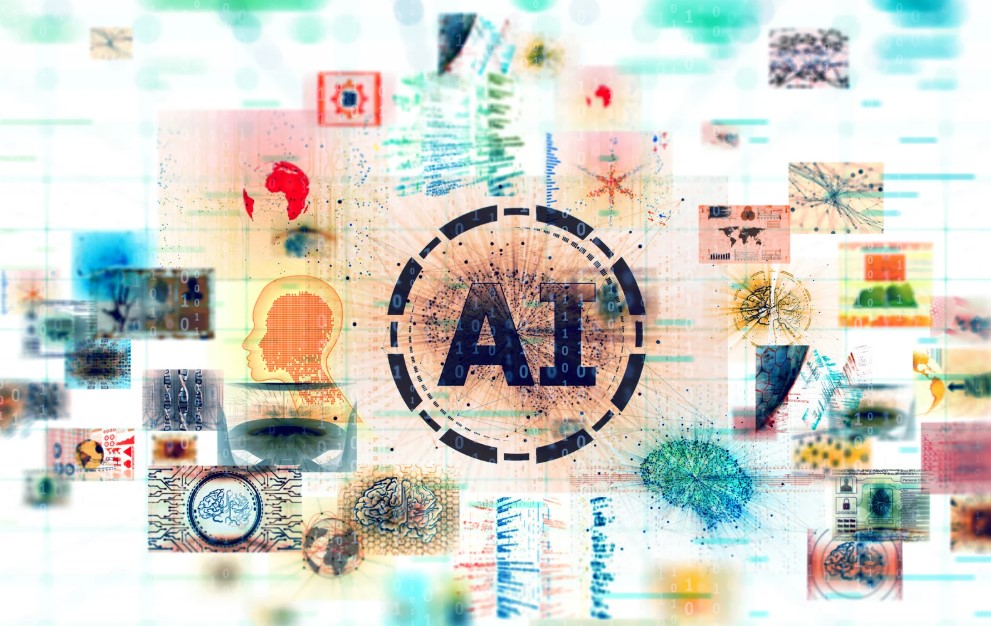The 2025 Annual Meeting of the World Economic Forum took place this week, with world leaders emphasizing regional reforms and the application of artificial intelligence. The event was not immune to the words and actions of Donald Trump. In fact, several sessions included discussions and reflections on the potential economic effects of the new U.S. administration.
For example, during Tuesday’s session, European Commission President Ursula von der Leyen responded to growing threats of tariff policies and anti-climate measures from the U.S. president. According to Banca March analysts, Von der Leyen reaffirmed the European Union’s commitment to remaining an open bloc willing to cooperate with international partners, advocating for an open approach in contrast to U.S. protectionism.
“She described the bloc’s strategy, which will be based on negotiation, while also stressing the importance of defending the EU’s principles, interests, and values,” they noted.
Banca March also highlighted that several international financial executives spoke during the sessions, pointing out a competitive advantage for U.S. banks due to their more lenient regulations. The CEO of Italian bank UniCredit stated that American banks are the real competitors. JP Morgan noted that Trump has created a very pro-business environment. The Vice President of BlackRock argued that Europe needs a wake-up call on regulation. In contrast, the CEO of UBS took the opposite stance, opposing widespread deregulation for large banks.
Regarding other industries, the CEO of pharmaceutical company Novartis downplayed concerns about Trump’s stance on vaccines and other health policies, calling such worries “exaggerated.”
Environmental Commitments
One of the most significant announcements was the creation of the world’s largest tropical forest reserve, the Kivu-to-Kinshasa Green Corridor Reserve, which will protect over 550,000 square kilometers of forest across the Congo River Basin.
“This historic and unprecedented initiative will not only transform our natural landscapes but also improve the livelihoods of millions of our citizens,” said Democratic Republic of Congo (DRC) President Félix-Antoine Tshisekedi Tshilombo. He added that the project goes beyond environmental preservation, incorporating economic development as well.
Meanwhile, Malaysian Prime Minister Anwar Ibrahim expressed optimism about ASEAN’s future and Malaysia’s role in it.
“The spirit of collaboration and solidarity among ASEAN leaders is unique,” he said, highlighting the regional integration in green energy that has contributed to Malaysia’s rise as a high-tech manufacturing hub.
He emphasized that while the U.S. remains Malaysia’s largest individual investor, its economic ties with China are expanding.
“We don’t go to war or make threats; we discuss, we get a little angry, but we focus on economic fundamentals and move forward,” Anwar stated.
AI and Technology
UN Secretary-General António Guterres issued a strong warning about two growing global threats: the unchecked expansion of artificial intelligence and the climate crisis. He described these issues as unprecedented risks for humanity, requiring immediate and unified action from governments and the private sector.
On AI, Guterres acknowledged its immense potential but cautioned against leaving it unregulated. He emphasized the need for international collaboration, referencing the UN’s Global Digital Compact as a framework for responsible digital technology use.
“We must work together to ensure that all countries and people benefit from AI’s promise and potential to support social and economic progress,” he said.
He also urged the private sector not to backtrack on climate commitments and called on governments to deliver on their promise to introduce new, economy-wide national climate action plans this year.
Meanwhile, Spanish Prime Minister Pedro Sánchez called for a reform of social media governance across the EU to combat disinformation and cyberbullying.
He urged for stronger enforcement of the Digital Services Act and the expansion of the European Centre for Algorithmic Transparency’s powers.
“The values of the European Union are not for sale,” he emphasized, calling for increased funding to research social media algorithms and ensure that Europe’s brightest minds address this critical challenge.
Geopolitics and International Relations
The Davos meeting coincided with the implementation of the ceasefire between Israel and Hamas.
Palestinian Authority Foreign Minister Varsen Aghabekian expressed cautious optimism, stating:
“Optimism is not an option; it is a necessity.”
She added that she hopes the ceasefire will lead to a more sustainable peace. Addressing the humanitarian crisis in Gaza, she stressed the need for immediate aid and long-term planning.
“We must ensure that aid reaches the people,” she insisted.
Meanwhile, weeks after the sudden collapse of Bashar al-Assad’s regime, Syrian Foreign Minister Asaad Hasan AlShaibani outlined the new government’s plans.
“We will not look to the past. We will look to the future. And we promise our people that this misery will not happen again,” he declared.
He pledged to respect women’s rights, reject sectarian divisions, and called for the removal of remaining sanctions.
“Thousands are returning to Syria and need to help rebuild the country. We are turning a new page… Syria must be a nation of peace.”
In a discussion with CNN’s Fareed Zakaria, Iranian Vice President for Strategic Affairs Javad Zarif expressed hope that a second Trump presidency would reconsider its withdrawal from the Joint Comprehensive Plan of Action (JCPOA), also known as the Iran nuclear deal, which Trump abandoned in 2018.
He suggested that a new Trump administration might take a more serious, focused, and realistic approach regarding the cost of withdrawing from the agreement.
“In terms of deterring Iran, [the withdrawal from the JCPOA] has failed. It has imposed significant economic costs on the Iranian people. Of course, the Iranian government is suffering, but the Iranian people—especially the most vulnerable—are suffering the most,” Zarif stated.




